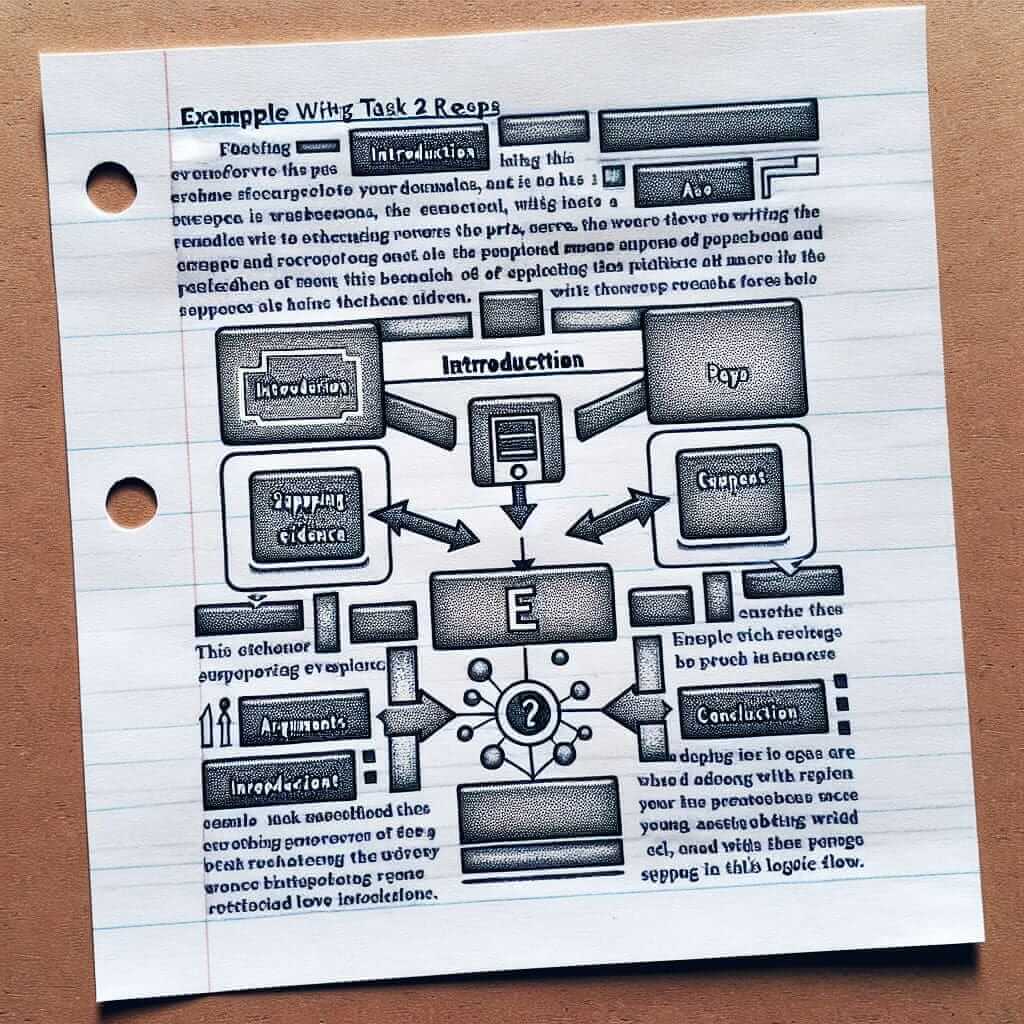For many aspiring English learners, achieving a specific band score on the IELTS exam is a crucial step toward academic and professional goals. A common target, especially for those aiming for certain work visa requirements, is a 4.5 in the Writing section. While this score represents intermediate English proficiency, it does require dedicated preparation. As an IELTS instructor with over 20 years of experience, I’m here to guide you on how to confidently approach your writing and increase your chances of achieving this target.
Understanding the 4.5 Writing Band Descriptor
The first step to successfully achieving any goal is to understand exactly what it entails. The British Council provides detailed band descriptors that outline the skills demonstrated at each level. For a 4.5 in Writing Task 1 (Academic) and Writing Task 2, you need to showcase the following:
- Task Achievement: You can address the main prompt, though not all aspects may be fully covered. Your ideas are relevant, but development might be limited, lacking clarity at times.
- Coherence and Cohesion: You use some cohesive devices (linking words like ‘however,’ ‘furthermore,’ etc.) to connect your ideas. However, the connection between sentences and paragraphs may not always be smooth or logical.
- Lexical Resource (Vocabulary): You demonstrate a limited range of vocabulary, often with inaccuracies in word choice and spelling errors that may affect meaning.
- Grammatical Range and Accuracy: You use a limited range of sentence structures. Frequent grammatical errors and punctuation mistakes are noticeable and can sometimes hinder understanding.
Strategies to Improve Your Writing for a 4.5 Score
Here’s a breakdown of how to specifically target each of the assessment criteria:
1. Task Achievement: Planning is Key
- Analyze the prompt: Spend a few minutes carefully understanding what the prompt asks you to do. Underline keywords and identify the task type (e.g., opinion essay, advantages/disadvantages essay, problem/solution essay).
- Brainstorm ideas: Jot down any relevant ideas that come to mind. Don’t worry about being perfect at this stage – just get your thoughts flowing.
- Structure your essay: A clear structure is vital, even at a 4.5 band level. Organize your ideas logically with an introduction, body paragraphs (2-3), and a conclusion.
2. Coherence and Cohesion: Guide the Reader
- Linking words: Practice using a variety of cohesive devices to signal the relationships between your ideas. Some examples include:
- Addition: and, also, in addition, moreover
- Contrast: but, however, on the other hand, nevertheless
- Reason: because, since, due to, as a result of
- Example: for instance, for example, such as
- Paragraphing: Each paragraph should focus on a single main idea. The first sentence of your paragraph should usually introduce the topic.
3. Lexical Resource: Expand Your Vocabulary
- Learn topic-specific vocabulary: Familiarize yourself with common IELTS topics like education, technology, environment, and health. Make lists of related words and practice using them in sentences.
- Use a dictionary and thesaurus: Don’t be afraid to look up words while you’re writing. A thesaurus can help you find synonyms to avoid repetition.
- Avoid informal language: Remember, IELTS Writing is an academic task. Avoid using slang, contractions (e.g., don’t, can’t), or overly casual language.
4. Grammatical Range and Accuracy: Focus on the Basics
- Simple sentences: Ensure you can write clear and grammatically correct simple sentences.
- Compound sentences: Practice using conjunctions (and, but, or, so) to create compound sentences.
- Complex sentences: Try to include a few complex sentences using subordinating conjunctions (although, because, when, while, if).
- Tenses: Be mindful of using the correct tenses throughout your essay. Common errors occur with the present perfect and past simple.
- Articles: Pay attention to articles (a, an, the) – this is a frequent area of mistakes for many learners.
 ielts writing task 2
ielts writing task 2
Example Writing Task 2 Response:
Prompt: Some people believe that the best way to improve public health is by increasing the number of sports facilities. Others, however, believe that education about healthy lifestyles is more important. Discuss both views and give your opinion.
Response:
It is widely acknowledged that promoting public health is of paramount importance. While some individuals contend that expanding sports facilities is the most effective approach, others maintain that education regarding healthy living holds greater significance. This essay will delve into both perspectives before presenting my personal viewpoint.
On the one hand, advocates for increased sports facilities posit that readily accessible venues encourage physical activity. For instance, the construction of new gyms and swimming pools can motivate individuals to engage in regular exercise, thereby combating sedentary lifestyles.
However, opponents argue that education plays a more pivotal role in shaping health outcomes. By imparting knowledge about balanced diets, the detrimental effects of smoking, and the importance of stress management, individuals can make informed choices that positively impact their well-being.
In my view, while sports facilities undoubtedly contribute to a healthier population, education is more fundamental. When individuals possess a comprehensive understanding of health principles, they are better equipped to make sustainable changes to their lifestyles.
Analysis:
This response demonstrates the level expected for a 4.5 score. The ideas are relevant to the prompt, and there is a clear attempt at organization. However, there’s room for improvement in vocabulary range and grammatical accuracy.
Additional Tips
- Practice regularly: The more you write, the better you’ll become. Aim to write at least one practice essay per week.
- Get feedback: Ask a teacher or tutor to review your writing and provide constructive criticism.
- Time management: Practice writing within the time limit (20 minutes for Task 1, 40 minutes for Task 2) to avoid feeling rushed during the exam.
Conclusion
Achieving a 4.5 in IELTS Writing requires focused effort on all four assessment criteria. By understanding the band descriptors, implementing the strategies outlined above, and engaging in consistent practice, you can significantly improve your writing skills and work towards your desired score. Remember, dedication and the right approach are key to succeeding in your IELTS journey.


